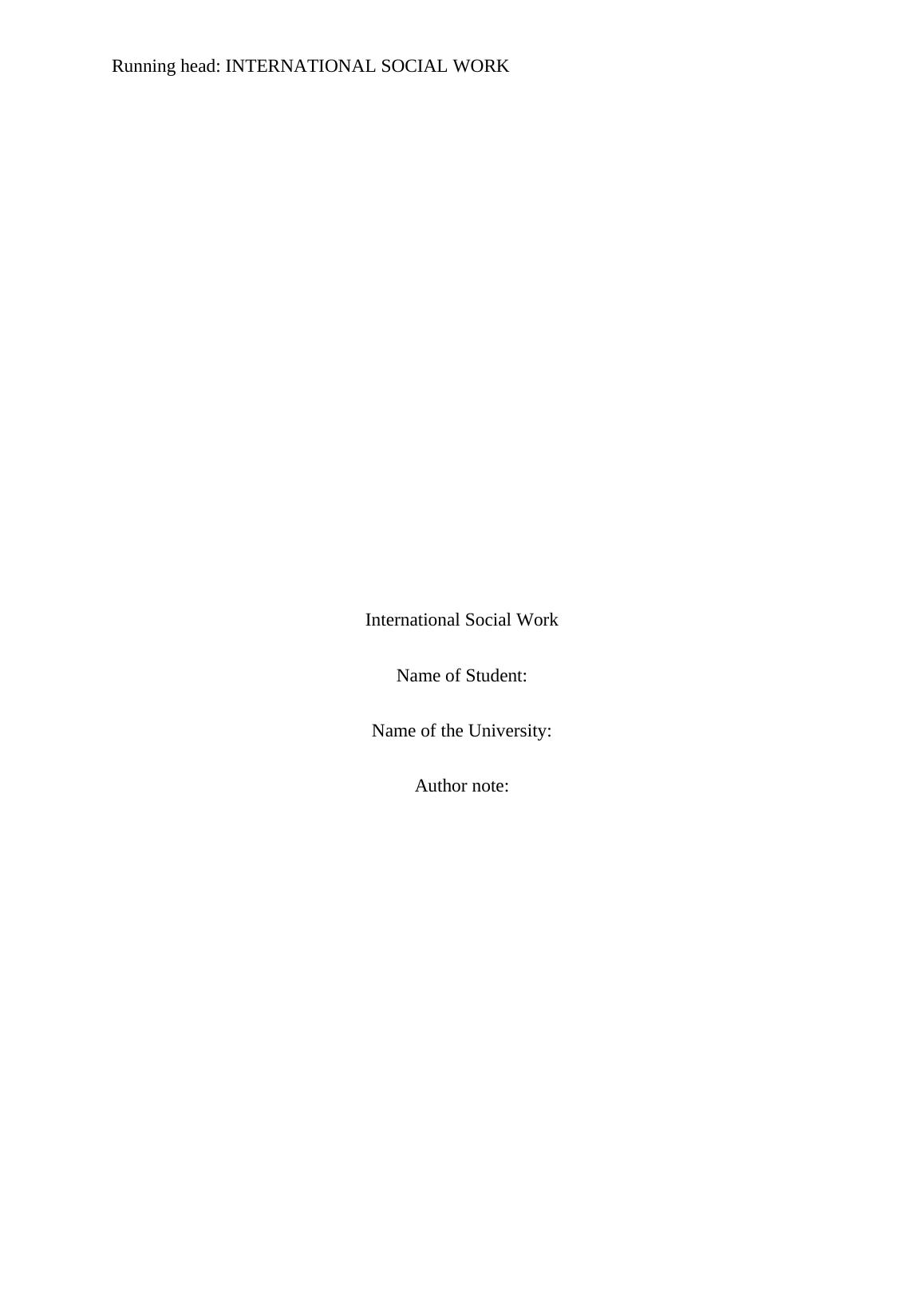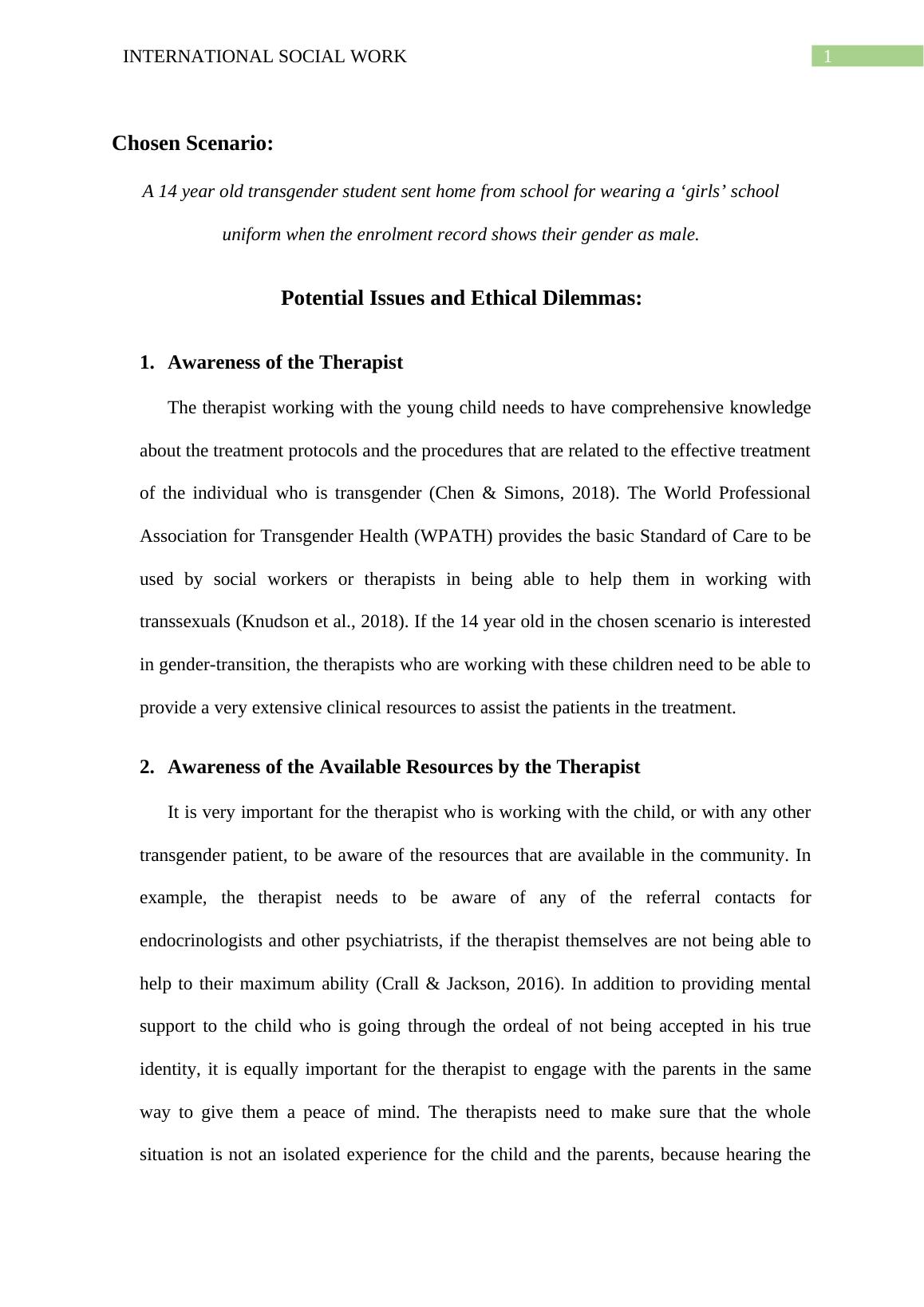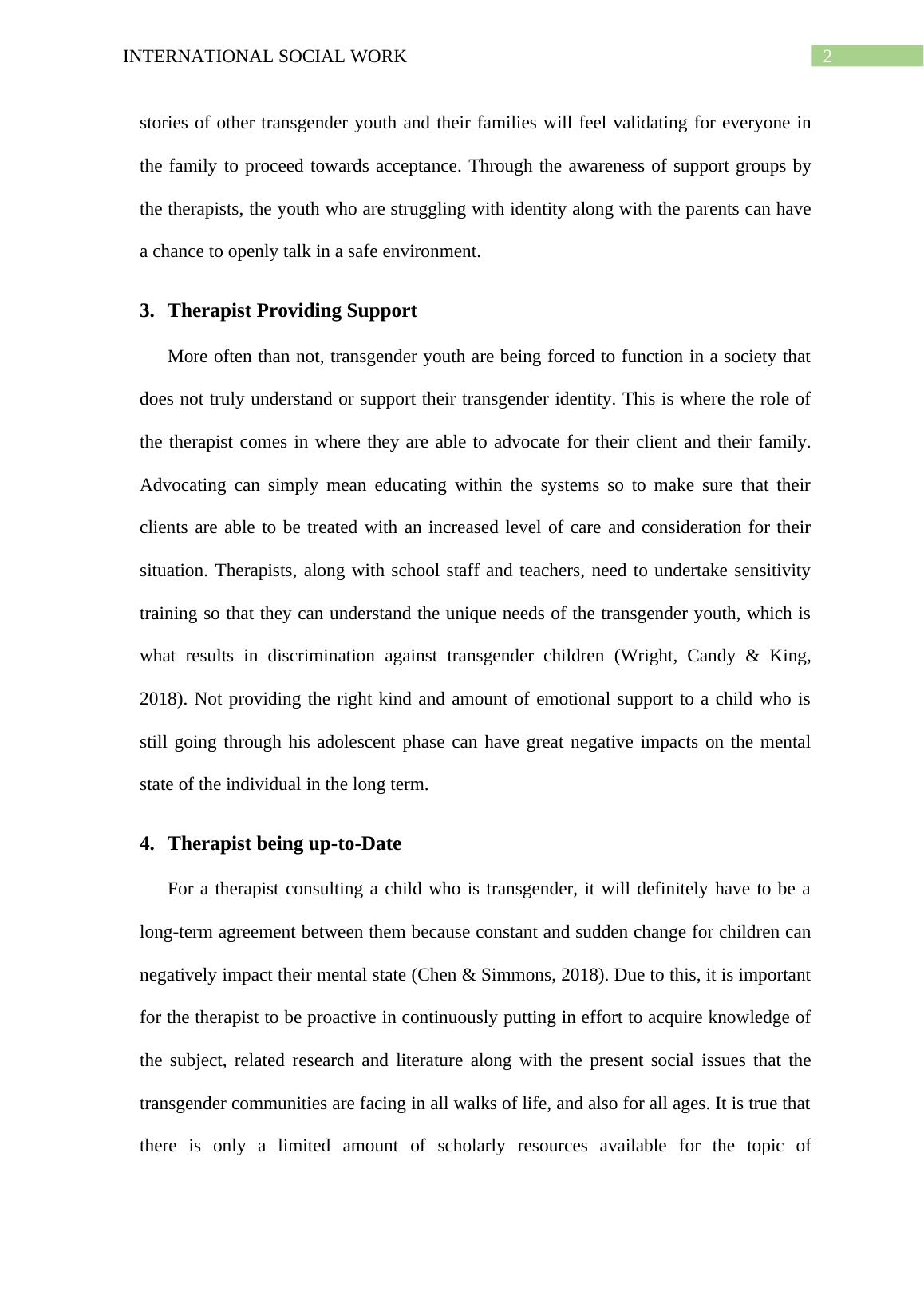International Social Work: Issues and Ethical Dilemmas
Choose a social work client scenario and analyze the potential issues and ethical dilemmas faced by a social worker. Discuss the social work values and ethical theories that can inform the response to the case scenario. Apply an ethical decision-making framework to the chosen scenario.
8 Pages2143 Words44 Views
Added on 2023-01-19
About This Document
This article discusses the potential issues and ethical dilemmas faced by social workers in international social work, specifically in the context of working with transgender youth. It explores the importance of therapist awareness, available resources, and providing support to transgender youth. The article also discusses the ethical decision-making framework, focusing on human rights and virtue ethics. Overall, it provides valuable insights for social workers working in international social work.
International Social Work: Issues and Ethical Dilemmas
Choose a social work client scenario and analyze the potential issues and ethical dilemmas faced by a social worker. Discuss the social work values and ethical theories that can inform the response to the case scenario. Apply an ethical decision-making framework to the chosen scenario.
Added on 2023-01-19
ShareRelated Documents
End of preview
Want to access all the pages? Upload your documents or become a member.
Empathy Map for Transgender Teenagers: Understanding Their Feelings and Perspectives
|3
|856
|122
Identity in Child Literature
|5
|1105
|13
Culture and Gender Perspective in Social Care Assignment
|6
|1092
|207
Culture And Gender Perspective In Social Care
|6
|1028
|390
Social Analysis of Health Issues
|4
|413
|63
PSYCHOLOGY. Psychology. Name of the Student: Name of th
|4
|474
|181



